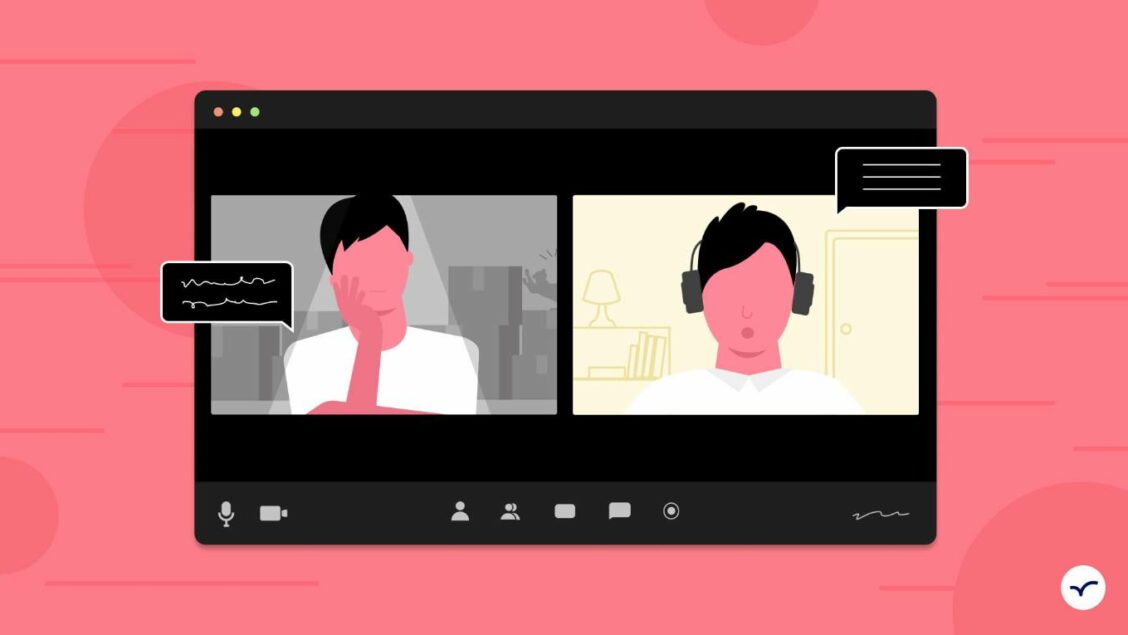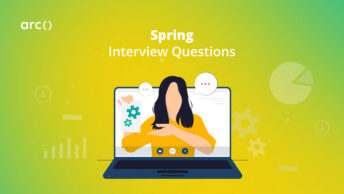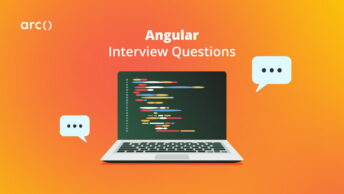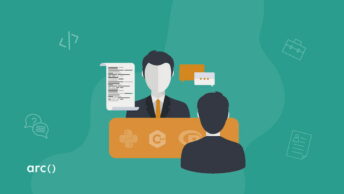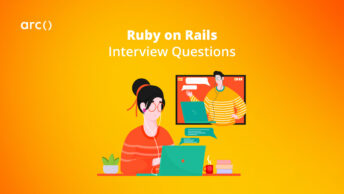For most of us, getting an interview is an achievement in itself.
You’ve submitted countless applications, and your resume has been drafted, edited, and redrafted. Now, the arrival of an email notifying you that you’ve been selected as one of the chosen few to progress in the employment process can be immensely rewarding.
However, it’s a double-edged sword. After all, only one developer will be selected. The odds are stacked against you. This realization culminates in a level of apprehension. That nagging thought rings around your head: Don’t mess it up!
In this post, let’s take a look at some common remote developer interview mistakes — and try to reduce them.
In my experience, the most common mistakes during interviews aren’t due to a lack of a candidate’s technical ability. Instead, often they’re just easily avoidable — and, luckily, easily fixable — errors and oversights. Understanding these mistakes devs make at interviews will greatly improve your chances of progressing in the application process.
So, watch this video as I go through some important mistakes to avoid at interviews, or scroll down past it to read the full article!
Looking to hire the best remote developers? Arc can help you:
⚡️ Get instant candidate matches without searching
⚡️ Identify top applicants from our network of 350,000+
⚡️ Hire 4x faster with vetted candidates (qualified and interview-ready)
Try Arc to hire top developers now →
1. Having a Poor Setup
You might be surprised to know that many developers fall at the first hurdle: setup. We’ve all heard the saying: “By failing to prepare, you are preparing to fail.” This is certainly true for remote interviews. The first moments dictate how the interviewer sees you as a candidate, including:
- What it will be like to work with you in the future
- Your attitude, and
- How professional you are in your approach.
All this happens before you’ve even said a word!
Your initial checklist for getting it right should be lights, camera, and action! A simple list to remember, hopefully. But what does it mean for an interview?
Lights
For lighting, make certain the room is well illuminated. Ensure your face is brightly lit, as well. A dim room has a sinister feel, and that’s not what you should be going for in an interview. The interview is about presenting your best self, a consummate professional — and “real life dark mode” just won’t cut it!
Camera
Eye contact is important during any in-person conversation. The remote interview is no different. It’s common for developers to have their webcam connected to a second monitor or for it to be relegated to the side of their desk. For the interview, however, the camera should be a first-class citizen. It should take pride of place or, at least, be the marker for where your eyes are focussed for the vast majority of the interview.
If eye contact makes you nervous, make the technology work for you; you really only need to look into the camera, not at the interviewer’s eyes on your screen. Minimizing the image of the interviewer can help calm those nerves. You only have to look at the camera, not the interviewer. Alternatively, consider minimizing yourself. It can be unsettling to see yourself on camera. Minimize the image of yourself, and focus on the conversation at hand.
Having a camera off to the side, high overhead, or too low on the desk gives an unprofessional feel to the interview. It may be a little uncomfortable, but having a one-on-one conversation at a 90° angle is somewhat odd in real life, so it should be no surprise it’s not great for remote interviews, either.
Action
“In face-to-face meetings, physical charisma often goes a long way in helping someone get noticed and advance in their career. More reserved or shy types are often at a disadvantage. But physical charisma can be more challenging to replicate online—creating a potentially different pecking order,” says the WSJ.
For remote interviews, don’t just sit stiffly by. Practice what they call “e-charisma” to show confidence and to communicate just how truly passionate you are for software engineering and technology.
Speak up and enunciate to be heard clearly on the hiring manager’s side. Be expressive, both with facial expressions and hand gestures, similar to how you might be in person. And, importantly, make sure you have a strong, stable internet connection so you aren’t getting frozen on their side in an embarrassing stance!
Read More: How to Write a Thank-You Email After an Interview
2. The Lack of a Smile
Lots of people get nervous during an interview, and that’s okay. Most interviewers are accommodating of this fact and are happy to make allowances. But, you have to play your part also. When people are nervous, they tend not to smile.
A smile is a display of confidence; the lack of one could mean you are nervous about the interview environment, or, as the interviewer might assume, nervous about the questions as you’re not as skilled as your resume might have led them to believe. A smile goes a long way.
You can also explore HireAI to skip the line and:
⚡️ Get instant candidate matches without searching
⚡️ Identify top applicants from our network of 350,000+ with no manual screening
⚡️ Hire 4x faster with vetted candidates (qualified and interview-ready)
Try HireAI and hire top developers now →
3. The Wrong Interview Clothing Choice
What to wear? The eternal dilemma. Smart or casual? That is the question and, unfortunately, there’s no concrete answer. The mistake here is not mirroring your interviewer. Now, you cannot go and change once the interview begins, but you can do your research beforehand. Investigate the company and their social profiles. What are they wearing in their videos? If they are dressed formally, then that’s a good place to start. If they are casual, then so are you — as long as it’s neat and clean.
The remote environment throws up extra nuances here. Dressing formally for an interview whilst remaining in your own home can feel odd. If you are unable to find enough evidence to mirror your employer, I would urge you to hit a nice middle ground. Be unremarkable in terms of your attire to keep the conversation focused elsewhere, such as on your skills.
4. Unprofessional Surroundings
Whether you work remotely already or you’re looking to make that move, it’s tempting to present yourself living that life. Working from a cafe, out in nature, or on the bustling streets of some faraway city are certainly images that evoke envy… but during an interview is not the time!
Working remotely is still relatively new, and many employers remain nervous about the prospect. Their thoughts and fears turn to what the developer is really doing when not under the watchful eyes of the office. The interview is the time to present yourself differently.
Remember, you are introducing yourself as a professional, and your environment should mimic that. Leave the interviewer in no doubt that you are someone ready to work: find a quiet place free from distractions, and keep the interviewer’s attention focused on you!
Read More: Best Remote Senior Developer Zoom Interview Tips & Advice
5. Not Having a Conversation
We’ve talked about how not smiling is a common interview mistake, but often, a second thing to disappear is the art of conversation. Interview questions are designed to showcase what a candidate can do, who they are, and what they are passionate about.
Don’t waste this opportunity with one-word answers.
Try to turn the event into a conversation, as opposed to an interrogation. This is much more memorable and pleasant for both parties! One trick to achieving this is to help change the flow of the interview yourself. I’ve personally found that whilst the position of the interviewer is one of power, that power crumbles when you ask the interviewer a question back. They are only human, after all!
Don’t wait until the end of your meeting for the interviewer to ask if you have any questions. Ask one early. I like to start with:
Why is this job open?
It’s a conversation starter, and it should also tell you why you’re in the room and what traits from your resume awarded you the interview.
6. Losing Momentum
When the interviewer asks about your financial requirements and notice period, it’s often a good sign. Usually, this means they are categorizing you as a finalist.
But, not knowing the answers and instead needing to go away and think about your response can kill momentum. Strike while the iron is hot to let the interviewer know you came prepared and you mean business.
What this means in practice is that you’ve done your homework on your salary range beforehand — you know your upper limit, and you know your sweet spot. However, it also means you’re ready to show them why you’re worth the amount you give them.
Rather than losing steam and leaving money talk for a follow-up conversation, seize the opportunity you have now while you’re at the front of their minds. For more on this, read my article about how to negotiate the salary you deserve as a remote developer.
Read More: Why a Cover Letter for a Remote Job is Necessary
7. Not Showing Passion
Believe it or not, many other developer candidates will have the same skills as you. Some will have more experience, others less. Thankfully, the decision doesn’t just come down to who has more experience. There is another factor: passion.
If you can make it clear from your resume and your interview that this is not just a job for you, this is your chosen path, and following it is something you simply must do, then you’ll find that employers want to support that. It’s not something to fake, but deciding what you want in life and then pursuing it with vigor is something that will truly set you apart.
8. Not Providing Solutions
Whether you realize it or not, the reason you are being interviewed is that there is a problem to be solved. Examples include things like too much work to do or a skills gap in the department. Whatever the reasons may be, your job as the interviewee is to find out what the problem is and show you can fix it. If they are behind schedule and need to catch up, you are the master of getting projects back on track and delivering on time.
If there is a skills gap you can discern prior to, or during, your interview, make sure to include the technology they are missing in the previous project examples you discuss. You are not just another developer, you are the solution. This is also one of the best ways to stand out at your current developer job, by the way!
Read More: Best Job Sites for Software Engineers
Let’s wrap up — and good luck!
Well, that’s a lot to take in, especially as you’re probably focusing more on any technical interview questions coming your way.
Just remember: as a remote developer looking for top jobs, you’re going to face stiff competition. You can’t afford to make any mistakes, especially during the interview.
However, if you follow the advice listed above, you have a great chance at impressing the interviewer and getting that offer.
Got any stories of remote interview mistakes you’ve made? Have any other instances of common mistakes developers make at interviews or during the job search? Let us know in the comments below, and thanks for reading!
You can also explore HireAI to skip the line and:
⚡️ Get instant candidate matches without searching
⚡️ Identify top applicants from our network of 350,000+ with no manual screening
⚡️ Hire 4x faster with vetted candidates (qualified and interview-ready)


